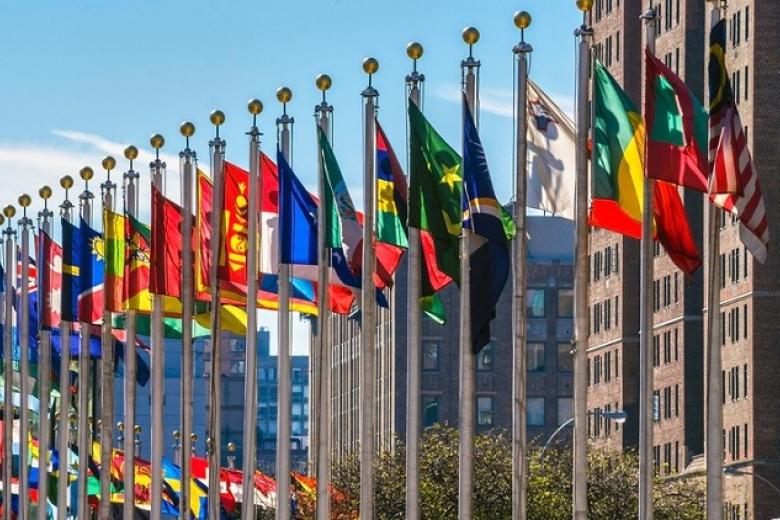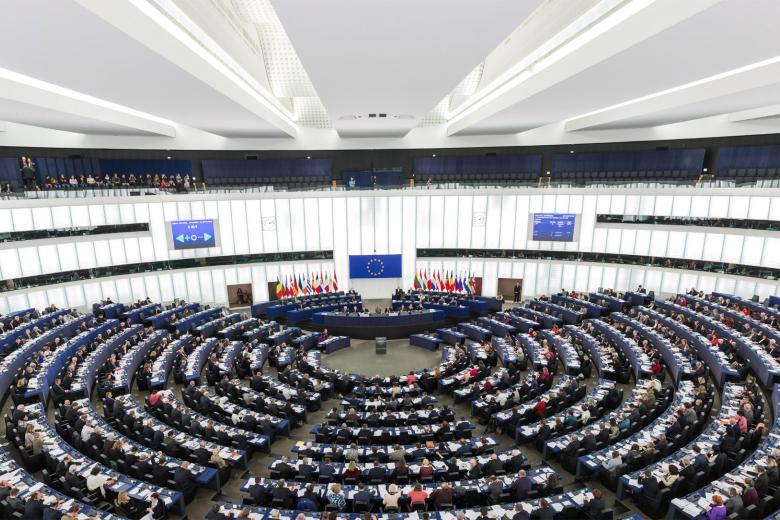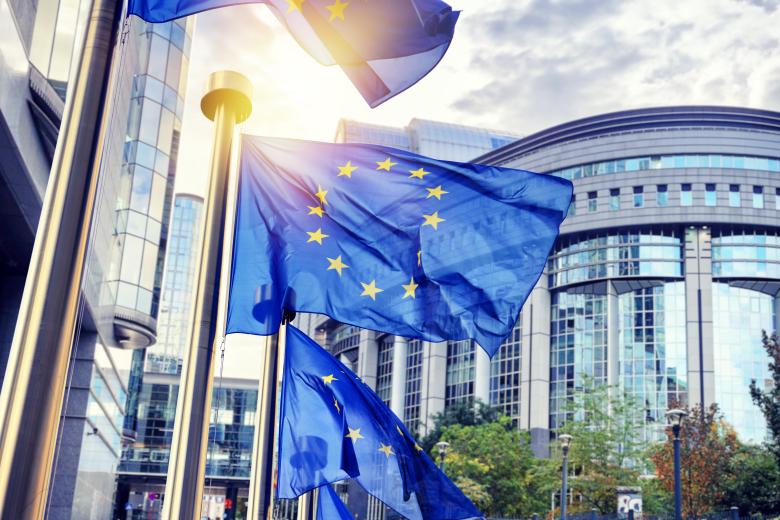Research clusters
Europe and the Crisis of Rule-Based Global Order. Head: Dr. Anna Herranz Surralles
The research in this cluster falls along three broad lines: (i) EU rule promotion and contestation in the European neighbourhood; (ii) diplomacy, bureaucracy and culture in EU foreign policy; and (iii) the EU and the future of global rules and multilateralism.
EU rule promotion and contestation in the European neighbourhood: Research focuses on EU policies toward the EU’s closer and wider neighbourhood (Middle East and North Africa, the Eastern Partnership (EaP), Central Asia), including democracy promotion, trade, finance, energy, migration as well as security and defense. Research also explores the ‘internal-external’ nexus in the EU’s policies as well as the domestic and external contestation of EU rules in the neighbourhood.
Diplomacy, bureaucracy and culture in EU foreign policy: Research focuses on values-interest intersections in EU foreign policy, ethics of European foreign policy and the role of strategic and diplomatic culture(s) in EU foreign policy. Other themes comprise the legitimacy, transparency and (democratic) accountability of EU foreign, security and defence policy, and the role of bureaucrats, experts, lobby groups and other non-state actors in EU foreign policy-making.
The EU and the future of global rules and multilateralism: Research focuses on the EU, international organisations and challenges to the liberal global order. The main themes include the EU’s role in international security, peace-building and conflict management, and the EU and international rules and regimes inter alia in trade, finance, development, energy, environment, health and migration. Research addresses EU relations with the world (e.g. Africa, Americas, Asia), multilateralism and comparative regionalism as well as the history of rule-based global order and the (contested) authority of regional and international organisations. A focus is also placed on examining Europe and global regulation of innovations related to digitalisation and automation, including privacy regulations, cyber security and the governance of autonomous weapons systems.
Key publications:
- Bosse, G. (2023). The EU's Response to the Russian Invasion of Ukraine: Invoking Norms and Values in Times of Fundamental Rupture. Journal of Common Market Studies, 62(5), 1222-1238. https://doi.org/10.1111/jcms.13569
- Dijkstra, H. von Allwörden, L., Schuette, L. & Zaccaria, G. (2025). The Survival of International Organizations: Institutional Responses to Existential Challenges. Oxford University Press.
- Herranz-Surrallés, A., Damro, C. & Eckert, S. (2024). The Geoeconomic Turn of the Single European Market? Conceptual Challenges and Empirical Trends. Journal of Common Market Studies, 62(4), 919-937. https://doi.org/10.1111/jcms.13591
- Reykers, Y., Karlsrud, J., Brosig, M., Hofmann, S., Maglia, C. & Rieker, P. (2023). Ad hoc coalitions in global governance: short-notice, task- and time-specific cooperation. International Affairs, 99(2), 727-745. https://doi.org/10.1093/ia/iiac319
- Hill, C., Smith, M. & Vanhoonacker, S. (Eds.) (2023). International Relations and the European Union (4th ed.). Oxford University Press.
- Weinhardt, C. & Petry, J., (2024). Contesting China's Developing Country Status: Geoeconomics and the Public-Private Divide in Global Economic Governance. Chinese Journal of International Politics, 17(1), 48-74. https://doi.org/10.1093/cjip/poae004

Democracy in Europe: Past and Present. Head: Dr. Janosch Prinz
Democracy never has a single meaning, but is always in flux, both as a concept and as a social and political reality. This research cluster takes as its point of departure the ever changing nature of understandings and practices of democracy. It brings together historians, political scientists, and philosophers who pool their expertise to shed light on the evolution, the dynamics, the institutional forms, and the contested nature of democracy across time and space. In doing so, scholars in this group explore democracy from regional, national, transnational and supranational perspectives. While the focus is on democracy on the European continent writ large (both within and beyond the territorial confines of the present-day EU), scholars in this cluster are also interested in global transfers, circulations, and exchanges, including both the influence of European conceptions of democracy in other parts of the world as well as the impact of global dynamics and understandings of democracy on Europe. In taking this approach, members of this group work on:
- The changing meanings of democracy and the impact of historically moulded forms of democracy on the practice of democracy in Europe today;
- Contestations of democracy, including the history and present of anti-democratic regimes and movements, as well as the origins and impact of populism and challenges to the legitimacy of democratic systems;
- Issues of democratic legitimacy within the European Union system of governance, Euro-scepticism, the alleged democratic deficit, the impact of expertise and technocracy on the form and function of democracy, and the role of national and supranational legislatures in shaping the practice of democracy in Europe;
- The problems of democracy promotion both in Europe and across the globe;
- The research also has an applied dimension as we are trying to find ways of improving current institutional expressions and practices of democracy, including e.g. the nature and possibilities of deliberative democracy.
Key publications:
- Burlyuk, O., Dandashly, A. & Noutcheva, G. (2024). External democracy promotion in times of internal rule-of-law crisis: the EU and its neighbourhood. Journal of European Public Policy, 31(3), 900-924. https://doi.org/10.1080/13501763.2023.2181381
- Conway, M. & Erlichman, C. (2024). Social Justice in Twentieth-Century Europe. Cambridge University Press.
- Komornicka, A. (2023). Poland and European East-West Cooperation in the 1970s: The Opening Up. Routledge.
- Makhortykh, M. & Wijermars, M. (2023). Can filter bubbles protect information freedom? Discussions of algorithmic news recommenders in Eastern Europe. Digital Journalism, 11(9), 1597-1621. https://doi.org/10.1080/21670811.2021.1970601
- Prinz, J. & Westphal, M. (2024). The Tribunate as a Realist Democratic Innovation. Political Theory, 52(1), 60-89. https://doi.org/10.1177/00905917231191089
- Sierp, A., Wüstenberg, J. & Olick, J. K. (2023). Taking Stock of Memory Studies. Memory Studies, 16(6), 1399-1406. https://doi.org/10.1177/17506980231207934

Political attitudes and behaviour in Europe. Head: Dr. Soetkin Verhaegen
Political attitudes and behaviour in Europe is an interdisciplinary research cluster that brings together research on societal actors in Europe, including individual citizens and nonstate actors. The research cluster focuses on topics such as political attitudes, political behaviour, representation, responsiveness, policy preferences, legitimacy, citizenship, and emotions in politics. These issues are studied on the regional, national, European, as well as the global level.
Next to its substantive focus, which is approached with a plethora of methods, this cluster explicitly also offers a platform to discuss the application of quantitative research methods. Members of the cluster are specialized in survey research, survey experiments, computational methods, and quantitative data analysis more broadly.
Members of this cluster work on issues such as:
- political participation, (monitoring) elections, European Parliament elections
- affective polarization, negative partisanship, political psychology
- social capital/cohesion, political/societal trust
- political communication, misinformation/disinformation
- interest groups, lobbying
- multilevel governance, international regime complexity, financial governance
Key publications:
- Dellmuth, L., Scholte, J. A., Tallberg, J. & Verhaegen, S. (2022). Citizens, Elites and the Legitimacy of Global Governance. Oxford University Press.
- Reinsberg, B., Heinzel, M. & Siauwijaya, C. (2024). Tracking earmarked funding to international organizations: Introducing the earmarked funding dataset. The Review of International Organizations. Advance online publication. https://doi.org/10.1007/s11558-024-09548-1
- Kelemen, R. D., Slapin, J. B., Fenzl, M. & Rieger, P. (2023). Out of sight out of mind? Voter attitudes about cooperation with radical parties in Europe. Journal of European Public Policy. Advance online publication. https://doi.org/10.1080/13501763.2023.2293211
- Russo, L. & Brock, P. S. (2024). Mainstream partisans' affective response to (non) cooperation with populist radical right parties. West European Politics. Advance online publication. https://doi.org/10.1080/01402382.2024.2336436
- Van Overbeke, T. (2024). It’s the robots, stupid? Automation risk, labour market resources and incumbent support in Europe. Research & Politics, 11(1). https://doi.org/10.1177/20531680241228914
| Members |
|---|
| Christine Arnold |
| Sandra Martinez Böhme |
| Iskander de Bruycker |
| Susanna Eiselt |
| Michele Fenzl |
| Mirko Heinzel |
| Luana Russo |
| Eli Sapir |
| Hans Schmeets |
| Toon van Overbeke |
| Soetkin Verhaegen |
| Ye Zhang |

